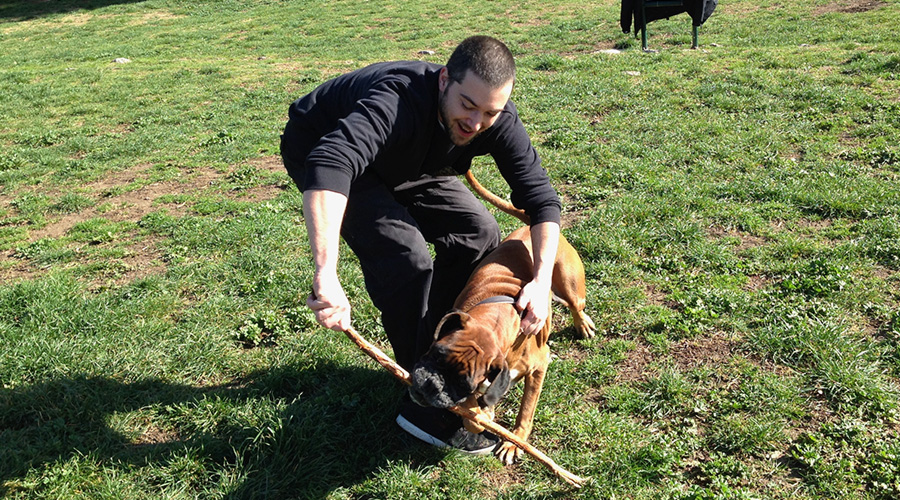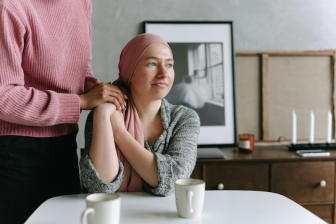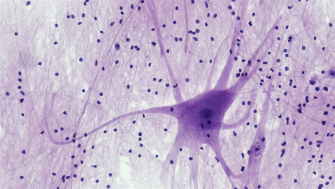Mislav’s Story: “The more time I have, the higher the chance that some new more effective drug will be developed”
Last updated: 15 March 2022

You can legally access new medicines, even if they are not approved in your country.
Learn howMislav was diagnosed with Grade II astrocytoma, a type of brain tumour, in 2018 and has struggled with the Croatian healthcare system to obtain a treatment, Fycompa, which was not approved in Croatia.
everyone.org was able to help him access the medicine and he is now one of the patients that we are happy to not have anymore: the hospital where he is being treated has approved the import and treatment of Fycompa to him for free.
We were lucky to speak with Mislav about his experience with his diagnosis and with obtaining an unapproved medicine in Croatia. Here is his story:
Can you tell us a little about your diagnosis and your previous treatments?
I had a type of lightheadedness and I thought it was something benign like a problem with the middle ear so I didn't do any meaningful tests until I had my first partial seizure. I was walking across the street and all of a sudden I didn't know how to move my legs. That lasted for a minute or two but it was frightening so I decided to go to the neurologist who had me take an MRI - which is how they found this tumour.
In July 2018 I was diagnosed with a brain tumour called Grade II astrocytoma, the lowest grade adults can have. For a time I was taking some drug combinations that have scientific evidence to make chemo and radiotherapy more effective. Some of these drugs I've ordered from your company. The most important thing is that after the operation of the tumour I had epilepsy that was getting worse and worse and I tried a lot of drugs here on the market and none of them worked.

I did some research, my background is in Biology, and found a drug that could help that was not approved in Croatia and I ordered it from you. It turned out that after taking it I didn't have a single seizure for a year.
How did you manage to receive approval to import Fycompa?
Because I was taking it and it proved successful, the hospital I'm going to for exams said that it would be moral to discontinue the therapy and gave me approval to have it for free - so it is now covered by basic insurance.
Did your treating doctor apply for the paperwork to have it approved or how did it work?
There is a meeting of doctors and they decide if they should approve it. I’m not sure if that money comes from the hospital or basic state insurance. It’s quite expensive, so I am glad they approved it in any case. If they didn't cover it, I would continue ordering it from you. When you get a seizure, the chance for a next seizure is higher, so if you can stop them at any point, then that’s fantastic.
You mentioned that you did your own research, did you visit your treating doctor to discuss your research?
Actually, I went to my neuropsychiatrist. The doctor I told you at first doesn’t have much time, they give you maybe 5 minutes for an exam and they said they didn't have time for reading studies. I then went to see my neuropsychiatrist and he had time to analyse the studies that I prepared and decided to give me the prescription I needed.
I compiled a list of research papers and wrote notes on them and why I think this should work on my type of tumour. Additionally, there is some evidence that Fycompa could slow down the tumour growth because recently they found out that the tumour communicates with the rest of the brain by using some molecule that this drug blocks. When it communicates with the normal tissue, it actually grows. That was also one of the reasons I thought this idea was worth pursuing.
Did you have surgery to remove the tumour?
I had a craniotomy and they took away 90% of the tumour because the last part was too close to a part that controls the left side of my body and my ability to speak. For this reason, they had to be conservative. These kinds of tumours are not really curable. The mass you see on the MRI is just its core and many other tumour cells spread around that area so statistically you live 5 to 7 years after the operation. After the operation I had radiotherapy for 2 months and chemo for 9 months.
Are you currently in remission?
No, the tumour is still active, but not growing, at least not visibly growing. I have to do checkups every few months and if it starts growing, then I need to have the surgery again. Afterwards, the standard treatment is more chemo and radiation, but I hope to find a good clinical study that I can join so I don't have to repeat chemo. I’m searching for immunotherapy studies as those are promising, while radiation and chemo again are just a bandaid, it can extend your life but the quality of life is very low. Most of the studies are in the US. I have to be financially prepared to go to the US for treatment. There are some studies in Europe, but the only one I found that suits my tumour was in Germany.
Unfortunately the nature of these tumours is they don’t stop growing but the question is how long do you have until they start growing. I know people who didn't see any growth in 10 years and people who saw growth in 2 years so I hope I am among the first.

The more time I have, the higher the chance that some new more effective drug will be developed.
That's where you come in as I saw you have one drug that combines some therapies that may become available and should give better results. For some people I know it made a lot of difference as it was written in published works. However, they don't yet understand why it works for some people but not for others.
Do you keep in touch with other patients?
Yes, I do. In the beginning I joined Facebook groups and some sites, one is called “Our brain tumuor cocktails and stories”. It's a site where people who believe that combining treatments is more efficient gather in order to find out which medicines to mix to get the best results. I've met some people there and on Facebook groups and finally I stopped going but I kept some friends I met there.
There is a great documentary for people who have a similar tumour where a professor combined different drugs and actually killed the tumour. Like a drug for breast cancer plus another drug and this was one of the few cases ever noted that cures this type of tumour. He’s in remission for 20 years.
[The documentary Mislav mentions is called “Surviving terminal cancer” and the producers made it freely available to watch on their website. Read more about it in The Telegraph.]
You said you had to find your own medicine and then find someone to prescribe it to you. Can you tell me more about that?
It was difficult but at the time, when they gave me the diagnosis, I was willing to do anything to make it better, to buy some time. I am lucky to have a scientific background and I could read studies and assess whether the findings are statistically meaningful. This way I could find this drug that I was happy with.
Neurologists in Croatia only know about the drugs we have in our market but know nothing about drugs that are not available in the country so it took me quite some time to convince a doctor to prescribe Fycompa to me. There is a problem in the Croatian system where there are numerous patients, but only a few doctors so the doctors are not able to give you much time to discuss your treatment. Sometimes you have to go to their private practice and buy an hour to talk to them, something I never did, but I was lucky to have access to this neuropsychologist that took the time to really listen.
What would you like to say to other patients who might be reading your story?

If you can't find a treatment that can help you, consider finding a professional who has time for you and discuss all the options, even those not available in your country. There just may be something that can make your life better, like there was for me.




